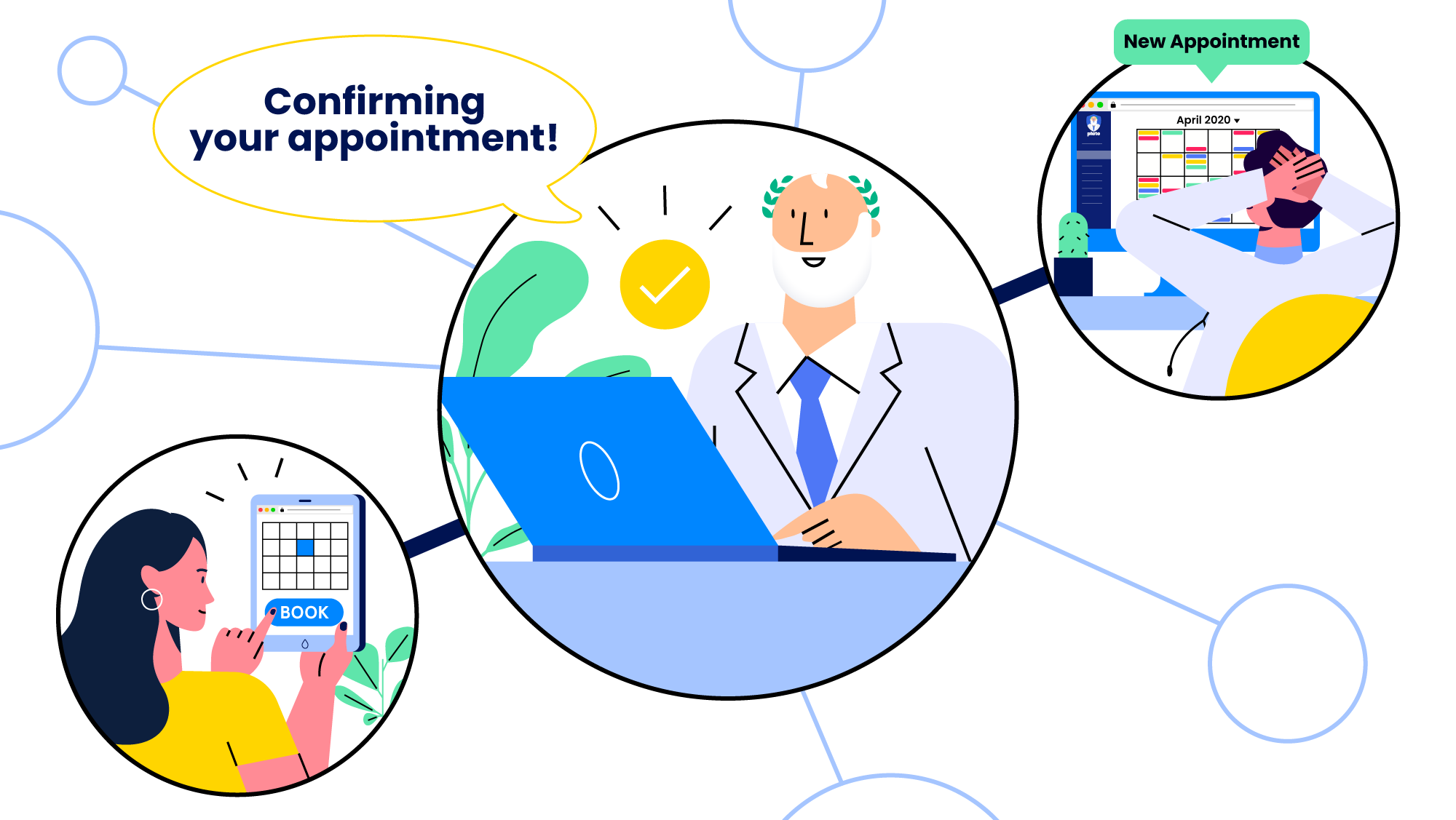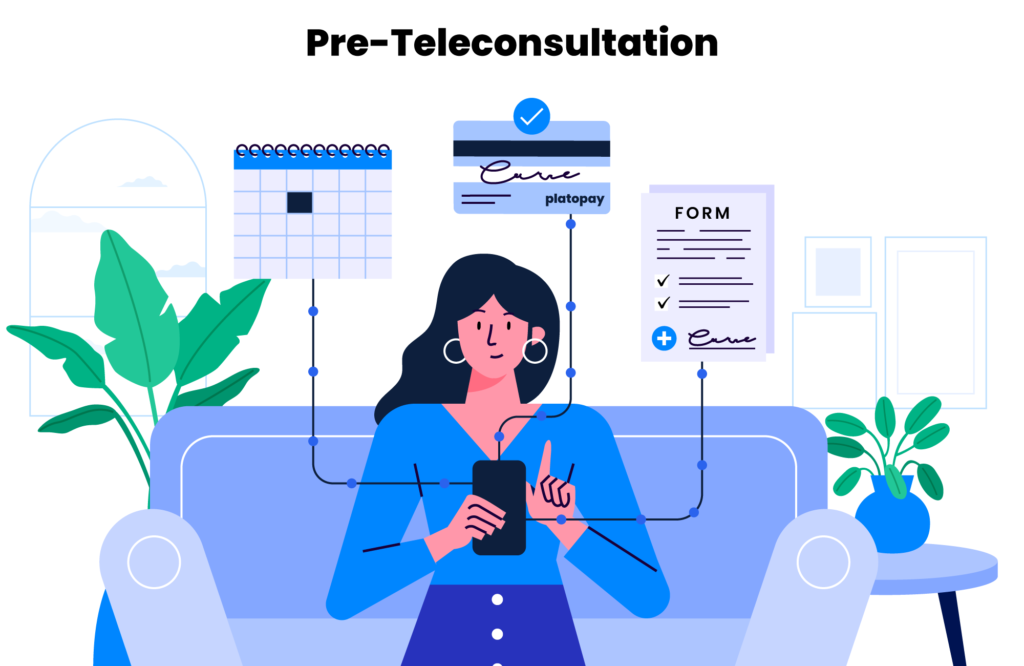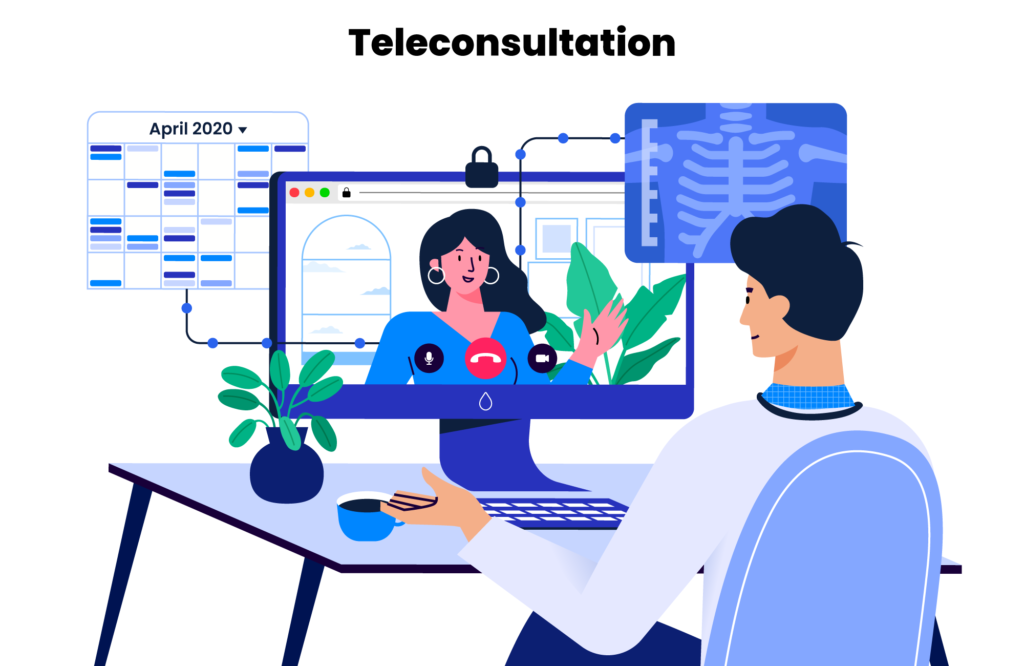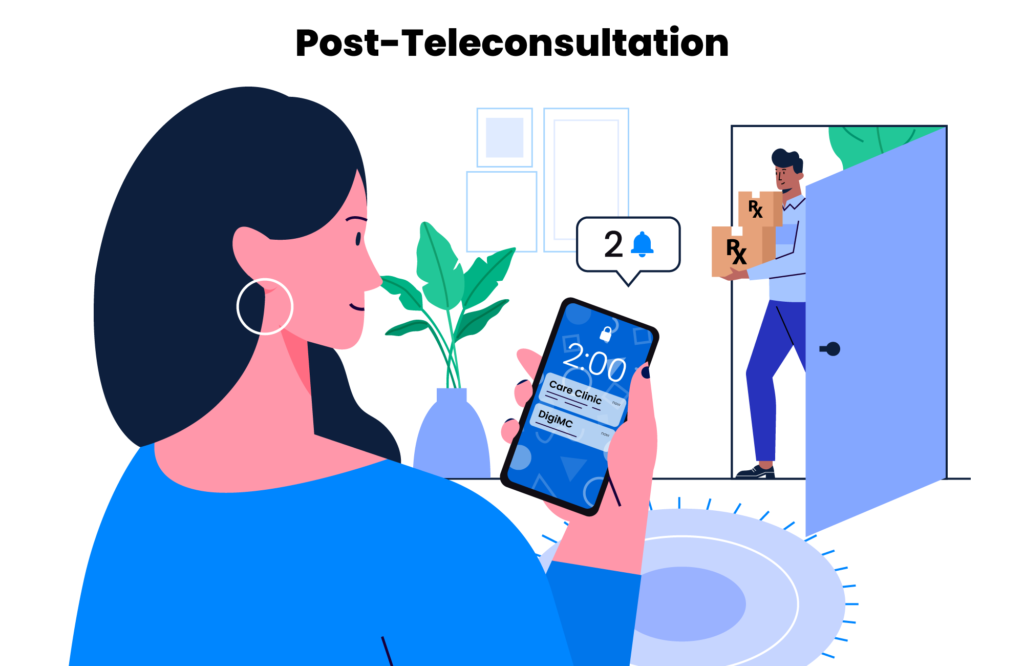Blog Running a Virtual Clinic Without a Front Desk

Studying how a virtual clinic runs without a front desk can also help you learn how to streamline work for your staff. With workplace automations, you can redeploy them to focus on patient care, improve the patient experience, and increase your team’s job satisfaction.
Technology has become so common in daily life that people are now expecting their medical providers to be tech-enabled—just like their employer, government, and other service providers. More than that, social distancing brought about by the COVID-19 pandemic has normalised virtual care for patients, who will expect their healthcare providers to provide a blend of virtual and in-person services going forward. Clinics that use Plato are engaged in over 1,000 teleconsults per week, happening across specialties, thanks to PlatoConnect.
So what does it then mean to be tech-enabled? For patients, it’s enjoying the convenience of virtual care. For clinics, it’s automating work, improving processes, and minimising costs. Weaving technology into your practice doesn’t mean eliminating the human touch—virtual clinics enable patients to meet their healthcare provider face to face irrespective of geographic barriers. While virtual care cannot fully replace an in-person visit, it is appropriate for monitoring patients’ health and ensuring they adhere to treatment plans. Similarly, costs can be minimised without diminishing the patient experience. Patients don’t feel better served by waiting for a staff member to complete data entry or scan paperwork. In fact, patients feel more comfortable seeing automation, as that conveys competence, reports Surescripts’ Connected Care and the Patient Experience survey. A clinic that leverages technology can automate work and provide virtual care where appropriate, thereby supplementing in-person services and enhancing each patient’s experience.
The most extreme example of a tech-enabled virtual clinic is a clinic that runs without a front desk. Though this model is not suitable for all clinics, some of Plato’s customers do operate without a front desk—and successfully to boot. For example, GP clinics that run evening sessions or provide homecare may choose to eschew a front desk. Similarly, a new allied health practice may begin with a single practitioner who provides care while managing operations. These practices follow a simple rule: avoid unnecessary costs. Where patient volume is manageable by a single pair of hands, hiring an employee to run your virtual front desk—when the clinic isn’t busy enough to warrant this hire—will increase your overhead costs unnecessarily.
But what if you already have a team? Studying how a virtual clinic runs without a front desk can streamline work for staff. Plato is a clinic management platform that automates the work of one staff member. If you automate as much admin work as possible for your team, you will have the option to redeploy them to focus on patient care, improve the patient experience and increase your team’s job satisfaction.
How to Run a Front Desk-Free Virtual Clinic?
A clinic management platform that automates front desk operations can free your time, so your focus is on patients and the complex value-adding aspects of your business. Plato has everything you need on one platform. It pulls its weight as part of your clinic team by handling everything from online appointments and patient registration to hassle-free billing and automated recalls.

Be accessible. New and existing patients can use Plato’s online appointment booking to secure their teleconsultation anytime, anywhere. Plato automatically sends your patient an appointment confirmation and updates your appointment calendar, so you don’t lift a finger.
Less data processing. New patients can pre-register their particulars online before joining the scheduled video call. Once submitted, the patient’s details flow straight into your Plato—no data entry needed.
Give patients peace of mind. Before teleconsultation, your patient may need to sign a consent form. A consent form is like a contract; patients should be able to peruse them in comfort. In Plato, you can configure your own templates for digital consent forms, and update them as and when needed. Once signed and submitted, the endorsed document—with date and time stamp for data integrity—is sent directly into your Plato and attached to the patient’s casenotes for easy reference.
Help patients manage care. Doctors can send patients a digital pre-teleconsultation survey, using Plato’s integration with the Typeform application, to better assess their medical condition beforehand. Patients thus avoid recounting medical history in-teleconsult, where they may unwittingly omit crucial details that affect diagnosis/treatment. This is especially important since the patient is doing a virtual consult, where in-person observation is not possible and extra care should be taken. Give patients time to carefully fill out pre-consultation details, so they can provide precise facts about their condition. Results from e-surveys are sent directly to your Plato, so no data entry is needed.
Hassle-free billing. Neither you nor your patient has to worry about teleconsultation billing with PlatoPay. PlatoPay is a secure PCI-DSS compliant service that lets you remotely charge the patient’s credit card for services rendered—the same way Grab or Uber charges for delivery or a car ride. If you opt for this billing mode, your patient will have to register their credit card details online, prior to the teleconsult, and it will be automatically saved into the patient’s record on Plato.

Simplify workflows. At the time of your patient’s teleconsult, simply check them into the queue system on Plato—like how you would for a physical consult—so you can keep an organised record of the patients you’d seen that day. If your new patient has pre-registered online, they will be automatically added to the queue after you confirm their details and create their patient profile inside your Plato.
Connect securely. Use your browser (recommended) or mobile phone to teleconsult with your patient at the scheduled time using PlatoConnect. Your patient can likewise connect with you easily by clicking on the invite link that was emailed to them. You can share Plato’s step-by-step infographic on ‘How to Use PlatoConnect’ with your new and existing patients so they understand how simple it is to video consult with you from anywhere.
One Platform to rule them all. Plato is a platform with everything you need in one place, including critical linkages to labs, radiology results, and third-party products in Plato’s App Marketplace. Platforms make work demonstrably easier by reducing the need for multiple windows or log-ins. It is fatiguing to continually login to different services and generates a productivity cost. Everything you need to see about your patient is in Plato, making it your go-to tool for making patient care decisions.

Minimise paperwork. If needed, send your patient a verifiable, government-backed digital MC within minutes of their teleconsult by SMS/email from Plato. Patients can forward their DigiMC to employers or relevant parties, and print it out on their end as and when needed. Bill your patient using PlatoPay and email them the invoice from Plato.
Dispensing options. Plato is integrated with G-MEDS Home Rx Delivery service, so you can deliver medicine straight to your patient’s doorstep. Alternatively, you can send your patient the softcopy of an outside prescription for medicine collection at a third-party provider.
Help patients manage care. Since patients don’t always schedule their next appointment immediately after their teleconsult, Plato’s recalls actively remind and engage patients on their follow-ups. This helps them stay committed to their care plan and receive maximum benefit from treatments. Plato’s recalls are inventory- or patient-based to cater to different treatment types.
Improve patient engagement. Aside from recalls, post-teleconsultation e-surveys act as a positive form of patient engagement. Doctors learn what they are doing right and where they can improve teleconsultation experiences. With Plato, doctors can send out user-friendly e-surveys by way of applications like Typeform or Delighted, both of which require no technical knowledge and are available as integrations on Plato.
Try Plato today
With Plato, you can automate front desk tasks not only for virtual clinics, but also physical clinics. As your small or startup virtual clinic begins to progress and scale, you need not worry about your CMS because Plato is designed to grow with your business.
June 11, 2020
